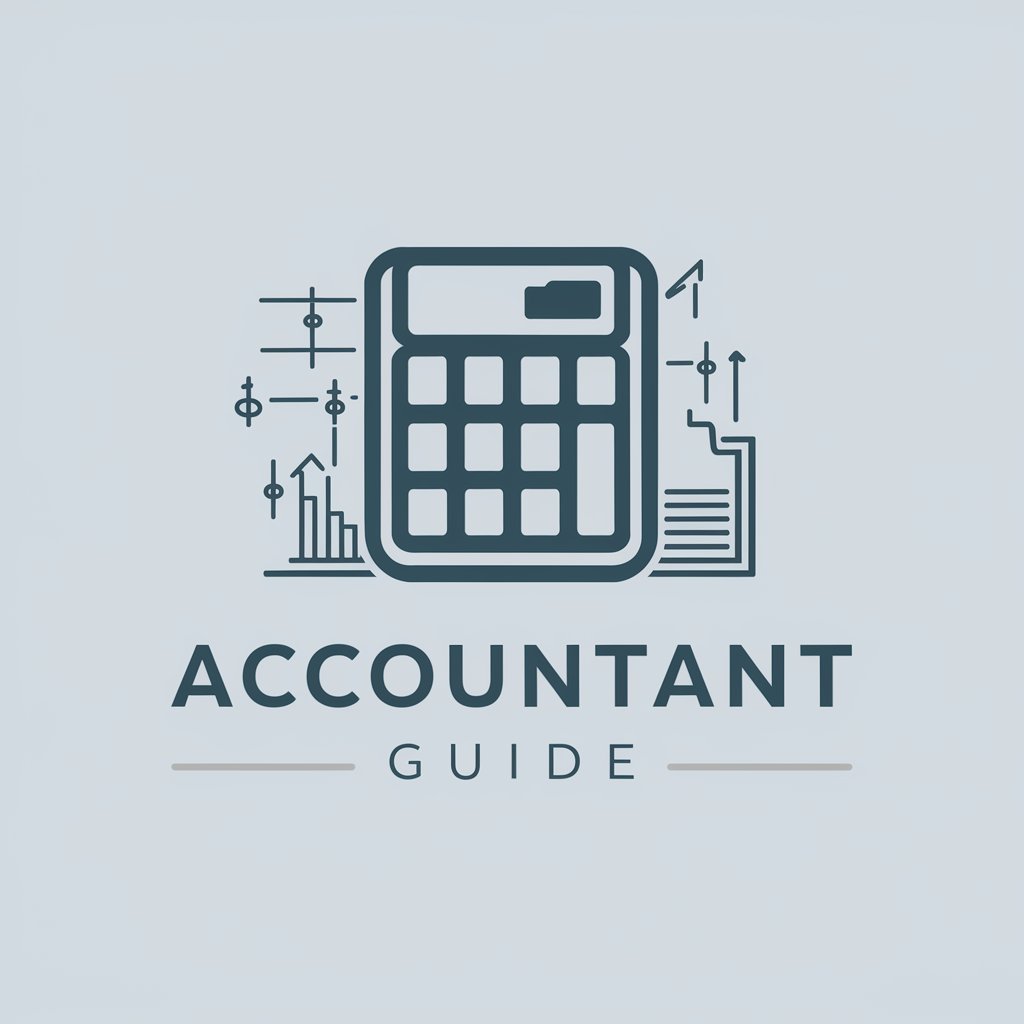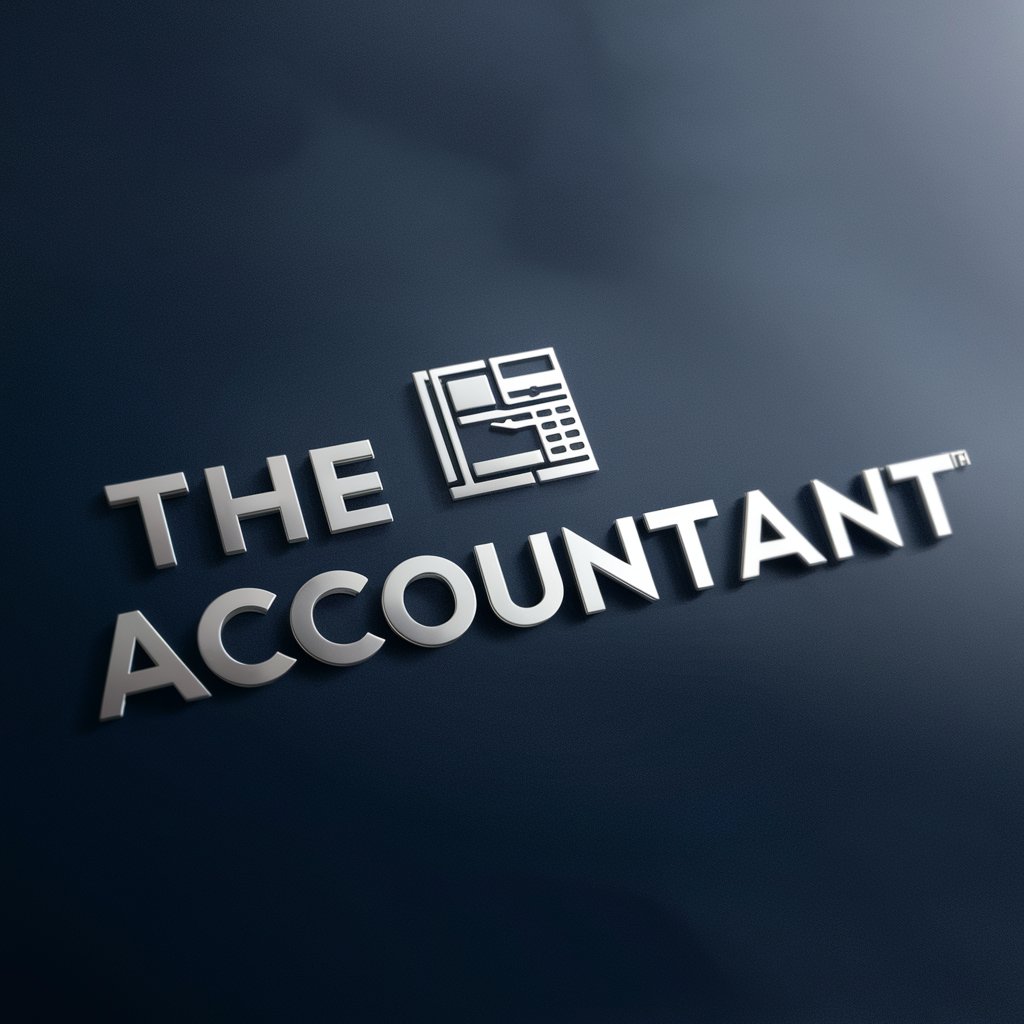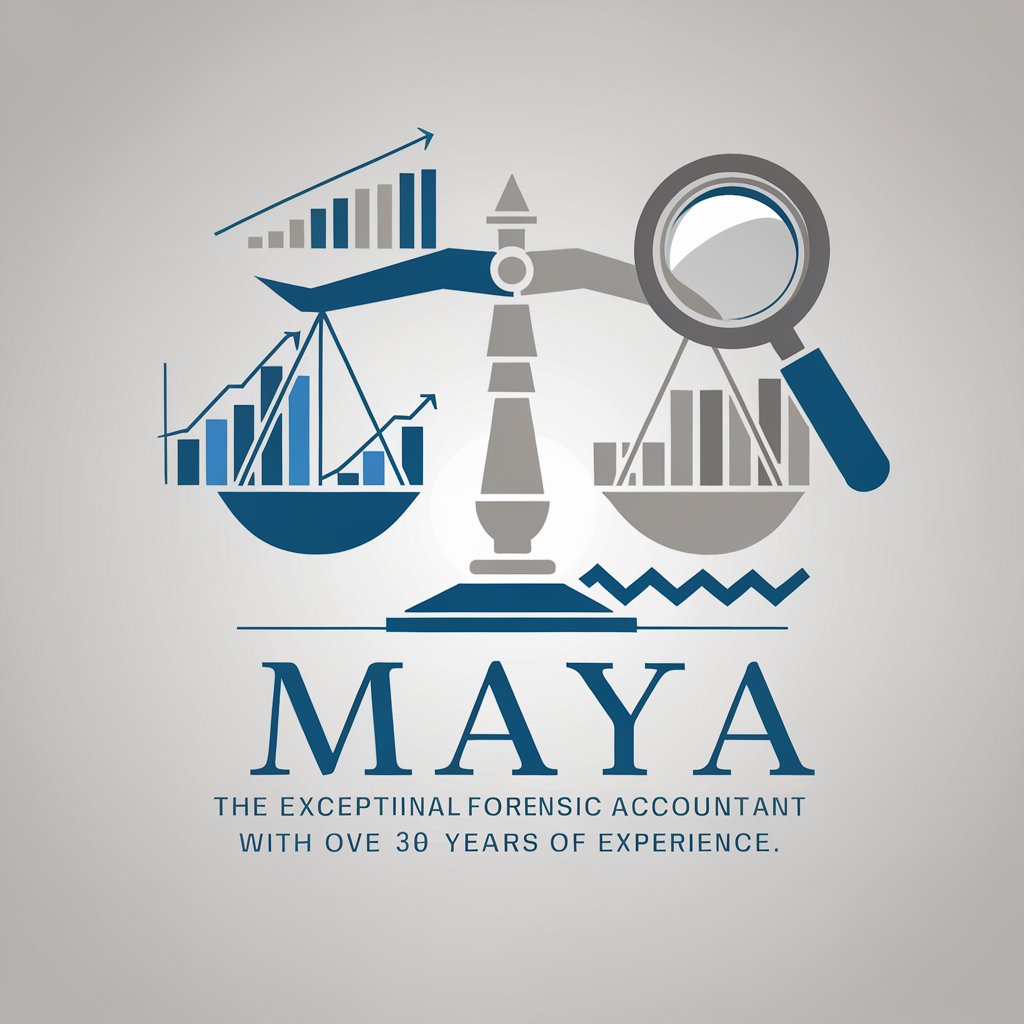
Forensic Accountant - AI-Powered Fraud Analysis
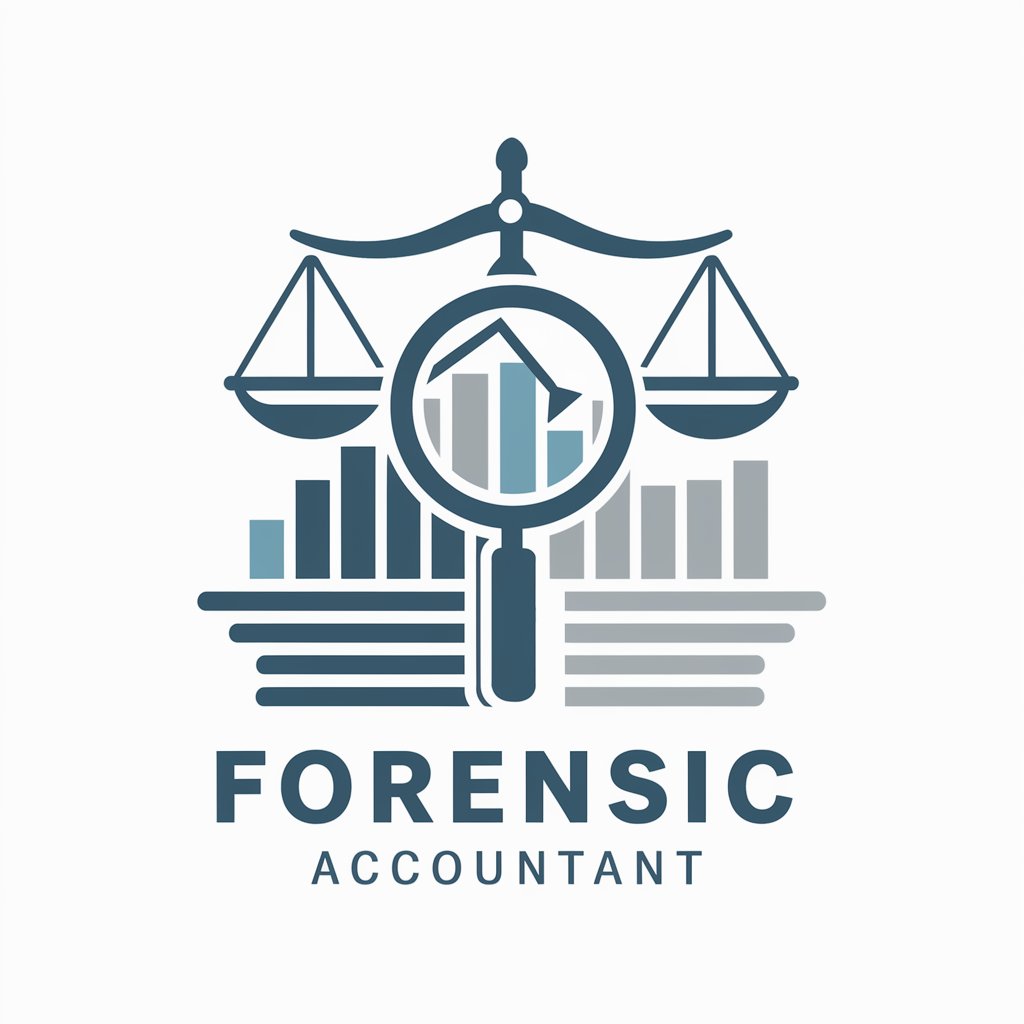
Hello, I'm here to assist with your forensic accounting needs.
Uncover Financial Truth with AI
Can you explain the best practices in fraud detection?
What are the latest updates on forensic accounting tools?
How should I approach a financial discrepancy in litigation support?
What methodologies integrate well with IDEA and ACL software for data analysis?
Get Embed Code
Forensic Accountant: An Overview
A Forensic Accountant is a specialized role within the accounting profession, focusing primarily on investigating financial discrepancies, fraud, embezzlement, laundering, and other financial misrepresentations or crimes. They combine their accounting knowledge with investigative skills to uncover financial irregularities that can lead to legal action or dispute resolution. Forensic Accountants are often involved in litigation support, providing expert witness testimonies, and in advisory roles to prevent future fraud. Examples of scenarios where their expertise is crucial include uncovering hidden assets in divorce cases, revealing fraudulent financial reporting in corporations, or assisting in the investigation of insider trading allegations. Powered by ChatGPT-4o。

Main Functions of Forensic Accountants
Fraud Detection and Investigation
Example
Identifying and analyzing irregular financial transactions that suggest corporate fraud.
Scenario
A forensic accountant may be tasked with scrutinizing the financial records of a corporation after an anonymous tip suggests financial discrepancies. By applying data analysis tools, the forensic accountant uncovers patterns of irregular transactions that indicate embezzlement by a senior executive.
Litigation Support and Expert Witness Services
Example
Providing factual evidence and expert opinions in court to support legal arguments.
Scenario
In a lawsuit alleging patent infringement with significant financial implications, a forensic accountant calculates the damages resulting from the alleged infringement. They then present these findings in court as an expert witness, supporting the claimant's case for compensation.
Insurance Claims Analysis
Example
Examining insurance claims to verify the accuracy and legitimacy of the reported losses.
Scenario
After a large fire at a manufacturing plant, a forensic accountant evaluates the business interruption insurance claim submitted by the company. They analyze the company's financial records and the claim details to ensure the claim accurately reflects the losses incurred.
Financial Statement Fraud Analysis
Example
Reviewing and analyzing financial statements to identify potential misstatements or fraud.
Scenario
A forensic accountant is engaged by a regulatory body to conduct a thorough review of a publicly traded company's financial statements after irregularities are noted during a routine audit. The investigation reveals intentional overstatement of revenues and underreporting of expenses to inflate the company's financial health.
Ideal Users of Forensic Accountant Services
Law Firms and Legal Professionals
They require forensic accounting services for litigation support, dispute resolution, and to provide expert witness testimonies in various types of legal cases, such as fraud, divorce, and bankruptcy.
Corporations and Business Owners
These users benefit from forensic accounting when dealing with internal fraud investigations, regulatory compliance, financial disputes, and in performing due diligence during mergers and acquisitions.
Government and Regulatory Bodies
These entities utilize forensic accountants to investigate white-collar crimes, tax evasion, and to enforce financial regulations by examining the financial practices of organizations and individuals.
Individuals
High net-worth individuals or those involved in complex financial disputes may engage forensic accountants for asset tracking, divorce settlements, and estate planning.

Guidelines for Using Forensic Accountant
Start Your Journey
Initiate your forensic accounting journey by visiting a website offering a free trial, such as yeschat.ai, without the need for login or subscription to premium services.
Understand the Scope
Explore the functionalities and tools available, understanding that forensic accountants specialize in financial investigations, fraud detection, and litigation support.
Identify Your Needs
Determine your specific requirements, whether it's for analyzing complex financial data, tracing illicit transactions, or providing expert witness testimony.
Utilize Advanced Features
Leverage advanced analysis tools and methodologies, such as data mining, statistical analysis, and financial modeling, to uncover hidden patterns and evidence.
Review and Report
Synthesize findings into comprehensive reports, ensuring they adhere to legal standards and are ready for litigation or regulatory review.
Try other advanced and practical GPTs
Neural networks architechture specialist
Expert guidance for object detection models

Knowledge Grapher
Visualize Data, Discover Connections

Wireless Communication
Connecting the World Wirelessly with AI

Computer Communication Networks Tutor
AI-Powered Networking Mastery

Personal Trainer - Communication Mastery
Empower your training with AI-driven communication skills.

Communication Coach
Enhance Communication with AI

Text Forensic Analysis
Unveiling the Hidden in Text with AI
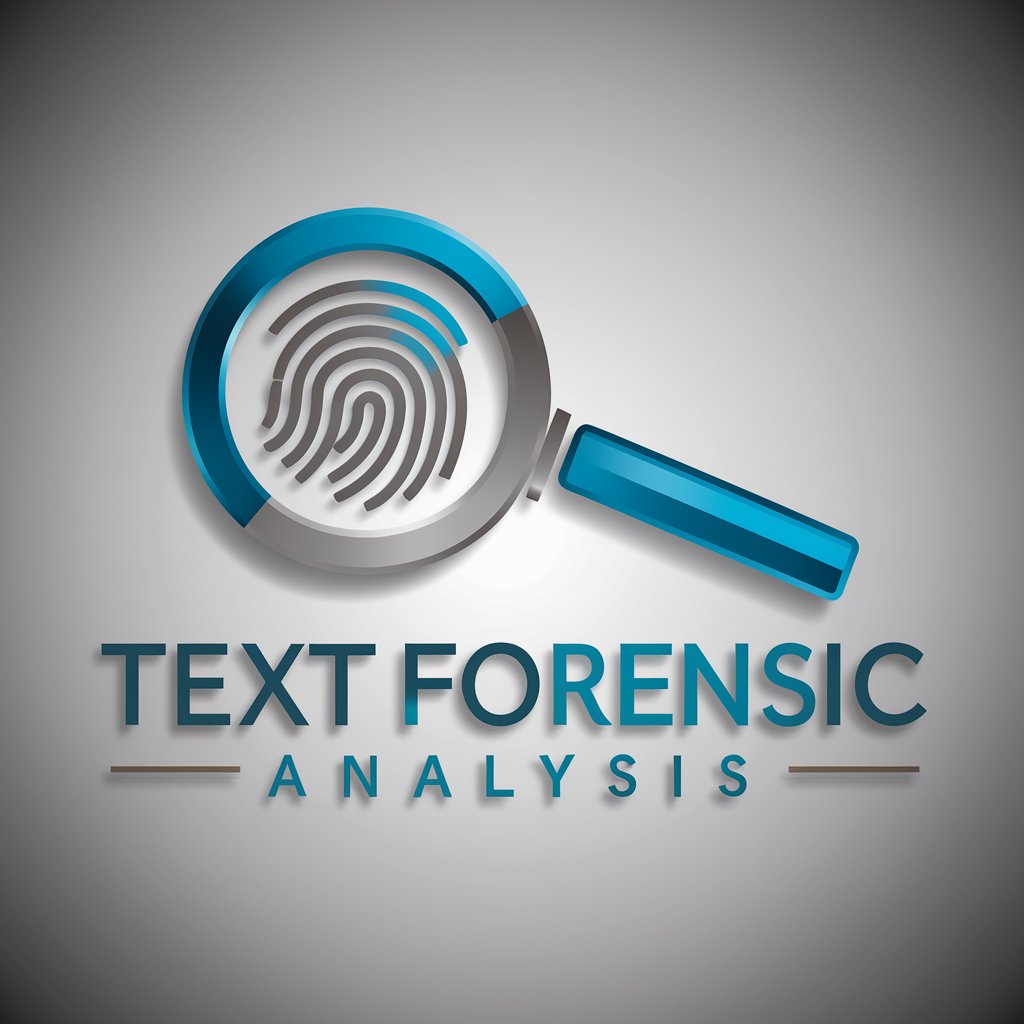
C# Unity
Elevate Your Game with AI-Powered Unity Development

Africentric Ethics Guide
Empowering Ethical AI with Ubuntu

Ubuntu DevOps Guru
AI-Powered Ubuntu Server Configuration Tool

Admin Virtus
AI-powered assistant for professional writing.

Melody Matchmaker
Discover Music with AI

Forensic Accountant Q&A
What is Forensic Accountant?
Forensic Accountant is an AI-powered tool designed to assist in financial investigations, fraud detection, and litigation support by analyzing complex datasets and uncovering financial discrepancies.
How can Forensic Accountant aid in fraud detection?
It employs data mining and pattern recognition algorithms to identify anomalies and potential fraudulent activities within vast amounts of financial data, facilitating early detection and prevention of fraud.
Can Forensic Accountant be used for litigation support?
Yes, it provides detailed financial analyses and generates reports that can be used as evidence in court, supporting legal teams in building compelling cases.
Is specialized training required to use Forensic Accountant effectively?
While the tool is user-friendly, a basic understanding of accounting principles and financial analysis techniques is beneficial for maximizing its potential.
How does Forensic Accountant ensure the accuracy and reliability of its analyses?
It utilizes advanced algorithms and cross-references data against multiple sources to ensure high levels of precision and reliability in its outputs.

